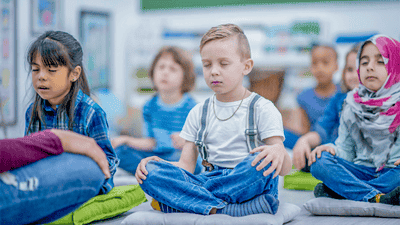
In today's fast-paced and ever-changing world, the concept of education has transcended the walls of traditional classrooms and the confines of formal schooling. Lifelong learning, a philosophy that emphasizes continuous education throughout an individual's life, has emerged as a fundamental principle for personal and professional growth.
The Importance of Lifelong Learning
1. Adapting to Change
The world is in a constant state of flux, driven by technological advancements, globalization, and evolving job markets. In such an environment, the ability to adapt is paramount.
Technological Advancements: Emerging technologies reshape industries and create new job opportunities. Lifelong learning equips individuals with the skills and knowledge necessary to stay relevant in their fields.
Career Transitions: Professionals may find themselves pursuing new career paths or shifting roles within their organization. Continuous education allows for the development of new competencies to facilitate these transitions.
2. Personal Development
Lifelong learning is not solely about career advancement; it also contributes to personal growth and fulfillment.
Pursuing Passions: Engaging in learning opportunities related to hobbies or interests can lead to a more enriched life. Whether it’s learning to play a musical instrument or studying a new language, lifelong learning fosters creativity and self-expression.
Building Confidence: Acquiring new skills can enhance self-esteem and confidence. The more individuals learn, the more empowered they feel to tackle challenges in various facets of their lives.
3. Enhancing Critical Thinking Skills
In an age where information is abundant yet often misleading, critical thinking has become a vital skill.
Evaluating Information: Lifelong learning encourages individuals to develop analytical skills necessary for discerning credible sources from unreliable ones. This ability is crucial in making informed decisions.
Problem Solving: Continuous education fosters creative problem solving. The more knowledge and experiences individuals accumulate, the better equipped they are to approach and resolve challenges.
Forms of Lifelong Learning
1. Formal Education
While traditional schooling serves as the foundation for knowledge, formal education does not end with graduation.
Graduate Studies: Many individuals choose to pursue advanced degrees to specialize in their fields. Graduate programs offer opportunities for in-depth study and research, laying the groundwork for career advancement.
Certification Programs: Various professions require ongoing education to maintain certifications. These programs allow individuals to stay current in their respective fields, ensuring they possess the latest skills and knowledge.
2. Online Learning
The digital age has revolutionized education, making learning more accessible than ever.
Online Courses: Platforms such as Coursera, Udemy, and LinkedIn Learning offer a vast array of courses on subjects ranging from programming to photography. These courses enable learners to study at their own pace and convenience.
Webinars and Virtual Workshops: Experts in various fields share their knowledge through webinars and virtual workshops. These interactive formats allow attendees to engage directly with instructors, gaining insights and skills.
3. Self-Directed Learning
Self-directed learning empowers individuals to take charge of their education.
Reading and Research: Engaging in self-study through books, articles, and research papers can be immensely rewarding. Individuals can explore topics that intrigue them, broadening their horizons and deepening their understanding.
Online Communities: Joining online forums and communities centered around specific interests fosters peer learning. Participants can share experiences, resources, and insights, creating a collaborative learning environment.
4. Professional Development
Continual skill enhancement is crucial for career progression.
Workshops and Seminars: Organizations often provide opportunities for professional development through workshops and seminars. These sessions allow employees to learn new skills while fostering team collaboration.
Mentorship Programs: Seeking mentorship from experienced professionals can expedite learning. A mentor offers guidance, insights, and feedback, facilitating personal and professional growth in a real-world context.
5. Informal Learning
Learning occurs in everyday settings and experiences.
Travel Experiences: Visiting new places exposes individuals to different cultures, languages, and perspectives. Travel can significantly enhance emotional intelligence and adaptability.
Conversations and Networking: Engaging in discussions with diverse individuals offers invaluable insights. Networking events, conferences, and casual conversations contribute to informal learning and knowledge sharing.
The Benefits of Lifelong Learning
1. Career Advancement
Engaging in lifelong learning contributes significantly to career success.
Skill Enhancement: Continuously acquiring new skills enhances employability and increases opportunities for promotions and salary increases. Employees who invest in their education demonstrate dedication and initiative to their employers.
Staying Competitive: In an increasingly competitive job market, lifelong learners can set themselves apart by showcasing their commitment to personal and professional development.
2. Increased Job Satisfaction
Lifelong learning can lead to greater job satisfaction and fulfillment.
New Challenges: Engaging in continuous education can provide individuals with fresh challenges and responsibilities. Taking on new projects or roles can reinvigorate one’s passion for their work.
Personal Fulfillment: The satisfaction derived from learning and growing can significantly impact overall happiness. Individuals who invest in their personal development often experience greater fulfillment both in their professional lives and personal pursuits.
3. Networking Opportunities
Lifelong learning fosters connections that can be beneficial throughout one’s career.
Building Relationships: Attending courses, workshops, and networking events allows individuals to meet like-minded peers and industry professionals. These connections can lead to collaborations, job opportunities, and valuable insights.
Expanding Horizons: Engaging with diverse groups of people can broaden one's perspective and provide new ideas and inspirations.
4. Improved Mental Health
Lifelong learning positively impacts mental health by stimulating cognitive function and promoting resilience.
Cognitive Engagement: Engaging in educational activities keeps the mind active, reducing the risk of cognitive decline as individuals age. Lifelong learners often report higher levels of mental agility and critical thinking skills.
Stress Relief: Pursuing new skills or interests can serve as an effective outlet for stress relief. Focusing on learning can provide a sense of purpose and accomplishment.
5. Cultivating Curiosity and Creativity
A lifelong learning mindset fosters curiosity and encourages creative thinking.
Continual Exploration: Lifelong learners are more likely to explore and engage with the world around them. This curiosity can lead to innovative ideas and solutions.
Embracing Challenges: Embracing a learning mindset encourages individuals to view challenges as opportunities for growth rather than obstacles to fear.

Cultivating a Lifelong Learning Mindset
1. Embrace Change
To foster a lifelong learning mindset, individuals must be open to change and willing to step outside their comfort zones.
Adapting Attitudes: Embracing change as a natural part of life can help individuals remain positive and adaptable in the face of new challenges.
Seeking Novel Experiences: Actively seeking new experiences, whether in the form of travel, hobbies, or coursework, can enrich one’s life and spark the desire to learn more.
2. Set Learning Goals
Establishing clear and achievable learning goals can provide direction and motivation.
Short-Term and Long-Term Goals: Setting both short-term and long-term learning goals helps individuals maintain focus and track progress. Regularly reassessing these goals can ensure they remain relevant and aligned with personal aspirations.
Celebrate Achievements: Recognizing and celebrating milestones in learning can enhance motivation and encourage further exploration.
3. Create a Learning Environment
A supportive learning environment can facilitate continuous education.
Organize Resources: Maintain a dedicated space for study and organization of learning materials. Creating an environment that minimizes distractions fosters focused learning.
Join Learning Communities: Connecting with individuals who share similar interests can provide encouragement and motivation. Collaborative learning encourages accountability and deeper engagement.
4. Leverage Technology
Technology offers exceptional tools and platforms for lifelong learning.
Online Courses and Webinars: Utilize freely available online courses and webinars to engage with new subjects and skills. Many esteemed institutions offer courses that cater to diverse interests.
Podcasts and Audiobooks: Listening to educational podcasts or audiobooks can be a convenient way to consume new information while multitasking or commuting.
5. Practice Reflective Learning
Reflecting on experiences enhances learning retention and promotes deeper understanding.
Journaling: Keeping a learning journal allows individuals to record insights, challenges, and achievements. Regular reflection facilitates self-awareness and growth.
Feedback and Self-Assessment: Actively seeking feedback from peers and mentors can provide invaluable insights for improvement. Assessing personal progress helps identify areas for further development.
Overcoming Barriers to Lifelong Learning
Despite the numerous advantages of lifelong learning, several barriers can hinder individuals from pursuing continuous education.
1. Time Constraints
Busy schedules can limit opportunities for learning.
Prioritizing Learning: Individuals must recognize the importance of lifelong learning and prioritize it in their routines. Setting aside dedicated time for education, even in small increments, can yield substantial benefits over time.
2. Limited Resources
Financial constraints can be a significant barrier to accessing educational opportunities.
Exploring Free Resources: Many educational resources are available for free or at a reduced price. Libraries, community centers, and online platforms often offer accessible learning materials.
Scholarships and Grants: Seeking scholarships and grants can alleviate financial burdens when considering formal education or certifications.
3. Fear of Failure
Fear of failure can deter individuals from trying new things or pursuing further education.
Reframing Mindsets: Embracing failure as a learning opportunity can encourage risk-taking. Viewing challenges positively reinforces a growth mindset.
4. Lack of Confidence
Some individuals may doubt their ability to succeed in continued education.
Affirming Strengths: Recognizing and affirming personal strengths and past successes can build confidence. Establishing a supportive network can also provide encouragement in pursuing new experiences.
5. Resistance to Change
Change can be uncomfortable, making it difficult for individuals to embrace lifelong learning.
Gradual Integration: Making incremental changes to include learning in daily life can ease the transition. Experimenting with new topics or methods can encourage openness to further exploration.
Conclusion
Lifelong learning is essential in today's ever-evolving world. It transcends traditional boundaries of education and encourages continuous growth, both personally and professionally. Embracing a lifelong learning mindset equips individuals to adapt to change, pursue their passions, enhance critical thinking, and foster connections.
By recognizing the importance of education beyond the classroom and engaging in various forms of learning, individuals can unlock a world of opportunities and personal fulfillment. Lifelong learning is not just a path to career advancement; it is a journey that enriches lives and empowers individuals to thrive in an increasingly complex world.



